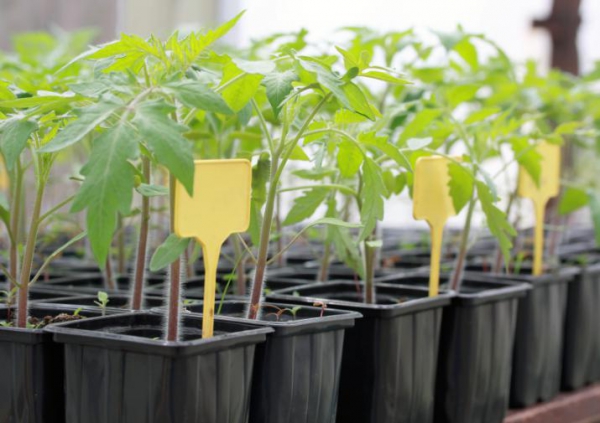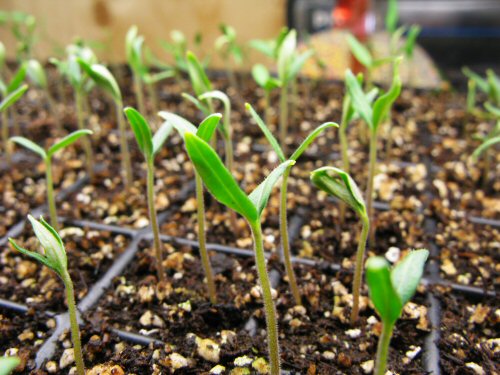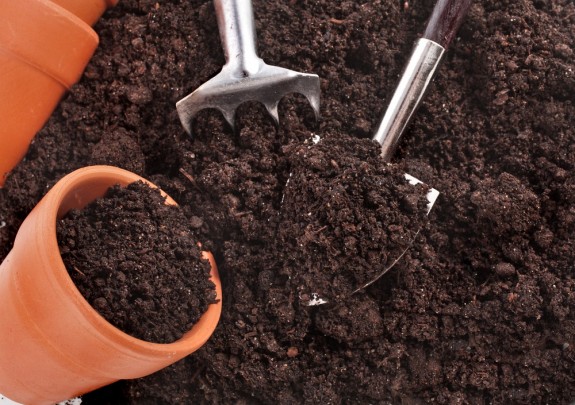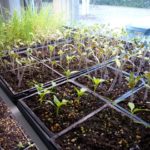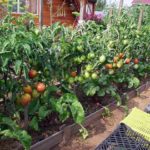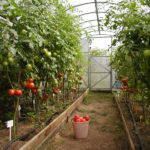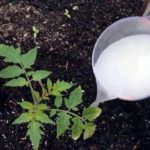Every vegetable grower who plans to grow tomatoes wants to get a good harvest. However, not all of them know how many days it takes for tomato seeds to germinate. In order for them to appear much faster, it is necessary to follow certain rules of care and planting.
When do tomatoes sprout?
It is very important to know on what day the planted tomato seeds germinate. This information will be needed to transplant sprouted tomatoes into the soil in time.The germination period of seeds directly depends on the planting material used. If dry seeds were planted in open ground, they take quite a long time to grow. In this case, planted tomatoes begin to appear only after ten days.
Some people treat the seed with special solutions before planting. This is done to speed up the appearance of the first shoots. Treated tomatoes will appear within 5 days after sowing.
Also, the timing of seed germination depends on their age. If you plant tomatoes from the year before last as seedlings, they will begin to germinate only a week after planting.
Accelerating tomato germination
Many vegetable growers want their seedlings to germinate very quickly. In order for tomato seedlings to grow faster, you need to plant the seeds correctly.
Checking the expiration date
The expiration date is checked to find out how long after purchase the seeds cannot be used. Their optimal shelf life is about five years. However, there are some varieties that can be used after 15 years from the date of purchase. For planting, it is recommended to use non-expired planting material.
Weeding out bad seeds
It is imperative to get rid of bad planting material, since it is impossible to determine how long it takes for seeds that were not pre-selected for planting to germinate. To sift out non-germinating seeds, the seed is placed in a glass filled with saline solution. The seed is kept in the liquid for about 20 minutes. During this time, seeds that will not germinate well will rise to the surface.
The seeds that have sunk to the bottom are suitable seed material that can be planted in the future.
Soak
To improve the germination of tomato seeds, a technique is used, the essence of which is to soak the tomatoes in a special nutrient solution. To do this, you can use store-bought products or prepare everything yourself. Experienced gardeners most often use the second option, as it is more economical. So, how long to soak the seeds and what needs to be done for this?
The seeds are placed in a small cloth bag and placed in heated water. The soaking time is about 10-15 hours. If during this period of time the water changes color, it needs to be replaced.
It is not recommended to soak the seeds for too long as they may spoil.
Hardening
In order for tomatoes to germinate quickly and develop better in the future, it is necessary to harden them in advance. To do this, the seeds are laid out between several layers of fabric and placed at the bottom of the refrigerator. They put them there at night and take them out only in the morning. This procedure should be carried out 2-3 times.
Disinfection
You can also speed up the germination time of planting material using preliminary disinfection. This can be done using an aqueous solution of potassium permanganate, in which the seeds must be kept for about half an hour. To do this, they are placed in gauze and lowered into a container with a solution. After disinfection is completed, they should be rinsed with cool water.
Sometimes a 3% hydrogen peroxide solution is used instead of this mixture. Before use, it should be warmed up to 50 degrees.
Germination
In order for the tomato to sprout faster, its seeds must be placed on a damp cloth. This should be done in a warm room with a temperature of at least 25 degrees.When germination, you need to very carefully monitor the condition of the tissue. It needs to be moistened regularly so that it does not dry out completely.
Sprouted seeds need careful care. If germinated seeds are handled roughly, their roots may be damaged. Therefore, during cultivation, it is recommended to use thick gauze to protect the seed from damage.
Why don't tomatoes sprout?
There are cases when tomato seeds do not germinate even a long time after planting. There are several main reasons why this problem occurs.
Seed infection
Quite often, planting material is a carrier of various diseases. If you do not disinfect it before sowing, pre-emergence damping off of the sprouts may occur and they will not be able to grow. Some infections can be very serious and can even spread to plants growing in adjacent pots.
Low temperature
If tomato seeds are stored at very low temperatures, they enter a state of deep dormancy. It is because of this that the first seedlings that appear take much longer to emerge than usual. In some cases, the germination of tomato seeds in rooms with low temperatures is delayed for two to three weeks. However, sometimes they do not appear at all and the tomatoes have to be replanted.
Deep sowing
The depth of sowing can also affect the germination of tomatoes. Quite often, seedlings do not germinate because they were planted too deeply. In order for such seeds to begin to germinate, it is necessary to increase the soil temperature. If the plant is grown in pots, then they can be placed in the sun or near radiators. However, in too dense soil, even this will not help tomatoes germinate.
Dense soil
Soil is the main medium in which tomato seedlings grow. That is why it has a significant influence on their germination. Rapid germination is facilitated by soil properties such as porosity, looseness and water permeability. However, if the soil is too dense, then water does not penetrate through it well and the seeds begin to suffocate.
Increased level of toxicity
Toxic soil is a fairly common reason why tomatoes fail to germinate. Very often, inexperienced gardeners, when choosing soil for sowing tomato seeds, focus only on its black color. It is not recommended to use soil taken from irrigation fields where sewage effluent can be processed. Also, do not use soil taken near lakes or ponds.
Conclusion
Every person who grows vegetables should know how many days it takes for tomatoes to sprout. To do this, you need to become familiar with the characteristics of tomato seed germination and what can affect the timing of the appearance of the first tomato shoots.

